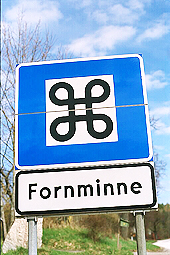When this blog site was established, widowhood was the farthest thing from my thinking. Illness wasn’t on my mind either, nor was radical life change. I just wanted to practice my writing, see if I could meet my own deadlines, and spend extra time with my keyboard.
Now, 3+ years later, I marvel at how this small blog has morphed into a classroom with readers teaching me and each other. As they do their best to get through this, whatever “this” is, they’ve willingly shared wisdom by way of comments and emails to benefit us all.
Because my own getting through has been my husband’s death and its resulting widowhood, many other widows have joined me in these posts, most of whom have been new acquaintances. Back at the beginning I had no idea that a simple blog could yield new relationships.
Other widows have taught me unique truths, even in the midst of the shock and sadness of their first year alone. As they’ve posted powerful comments, they’ve influenced others, some of whom aren’t widows or even women. Every reader wants to know how to get through, and nothing shows us as well as the story of someone who’s been knocked down but is testifying from an “up” position. We think, “If she can do it, so can I.”
One cyber-friend speaking from an “up” position (despite being a widow for only 6 months) sent a short list detailing what she’d learned. Her insight hit me over the head (in a good way, of course) and is an excellent summary of why anyone struggling to get through something can look to God for rescue. She wrote:
The Lord smiles at 3 things:
- when I say, “I give up.”
- when the experts say, “There’s no way.”
- when his children say, “Yes, we’ll wait.”
These 3 statements speak volumes about God’s character and why we can trust him to successfully get us through whatever is threatening to hold us back. In a practical sense,
- when we say, “I give up,” he says, “I’ll take over now.”
- when we say, “There’s no way!” he says, “Watch me make one.”
- when we say, “I’ll try to be patient,” he says, “I’ll make it worth it.”
Receiving this kind of wisdom from blog readers is a priceless bonus I never expected. And with the above thoughts, I’ve been given 3 things I can do to put a smile on God’s face.
Greater wisdom than that can’t be found anywhere.
“Blessed be the Lord, the God of Israel, who alone does wondrous things.” (Psalm 72:18)






